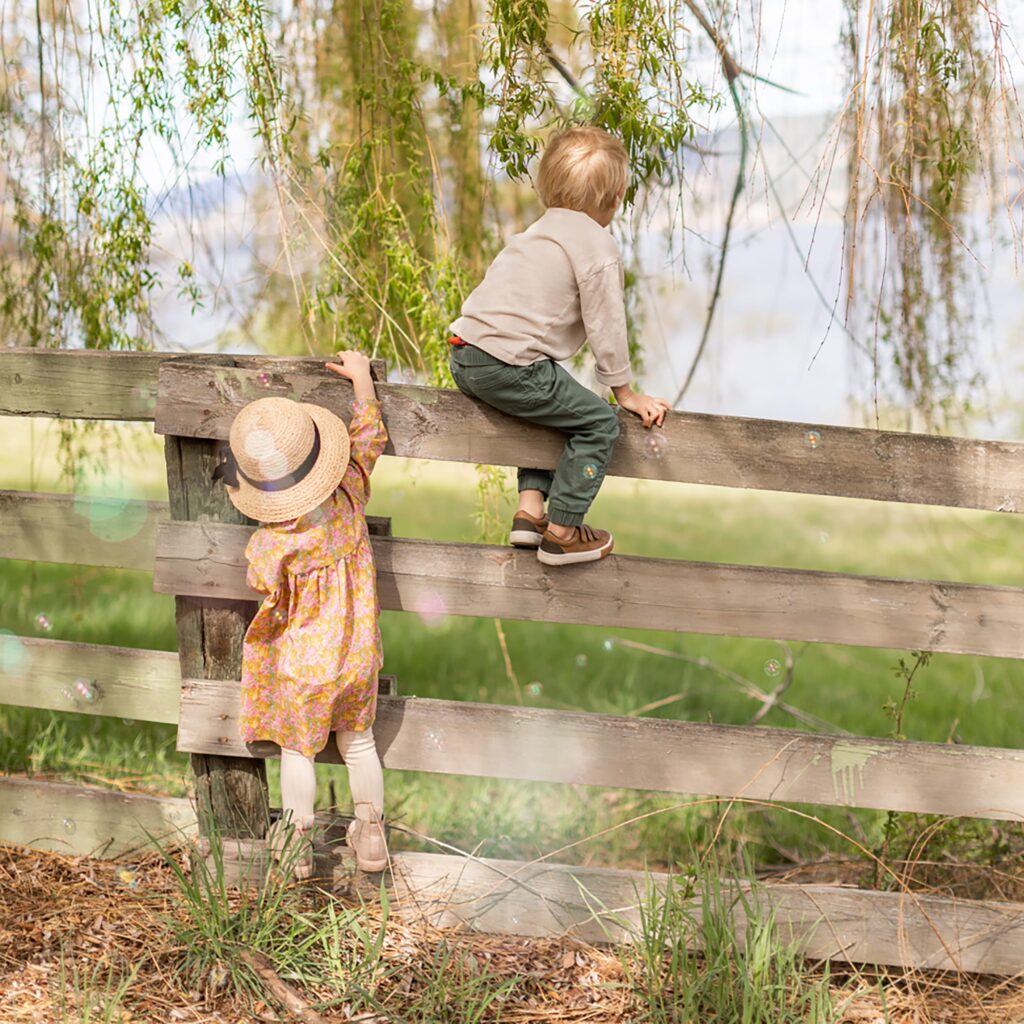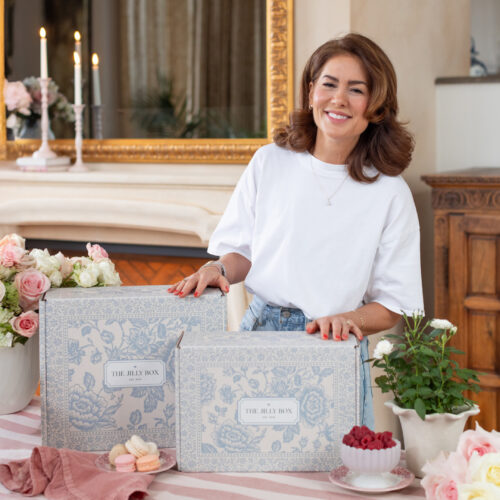Something about the word discipline, still makes me cringe. I can’t help but associate it with the word punishment. The word discipline conjures up images in my mind of the wooden spoon, which was the weapon of choice for my Mom back when I was growing up. Luckily for me, I had an older sister who normally got the first couple of whacks of the wooden spoon before I did for disobeying rules. My mom had run out of momentum with her swing by the time I got the back end of it. The word discipline also conjures up the memory of the authority given to educators to use the strap for minor infractions, and the yard stick on students for either misbehaving or not doing their homework. I remember losing my recess one day, and instead of playing I had to hold a stack of books with my arms out until the bell rang. I remember the punishment but I can’t even remember what I actually did wrong. What did this experience ultimately teach me other than instilling fear? Nothing. The traditional model of parenting using discipline may keep your child behaving, but may also leave them fearful of honestly opening up to you.
This method of corporal punishment was not uncommon when I was a child, but I feel like we should be more educated these days. Memories of any corporal punishment I endured have been forever etched in my brain even though many of those experiences were over 50 years ago. To me, this can’t be a good sign that those practices of punishment and discipline were right. Luckily I didn’t experience too much of this so I’m not traumatized by it, but there are a lot of people who have been. I know a lot of us fall back on the theory of ‘well, we turned out ok.’ But did we? Or could we have been better human beings? Oprah once said, “That our parents raised us, the best way they knew how” —I believe that. However, I don’t think that means we have to repeat the same cycle with our children. Oprah was also quoted as saying, “Children need three things: to be seen, to be heard, to matter.“

I made a conscious decision NOT to teach my own children, and the students in my classroom with the mentality of using either verbal or physical acts as a form of discipline. In order not to repeat the same cycle of parenting, I began to educate myself by reading different self-help and parenting books with a variety of shepherd leadership philosophies. That is why I chose to GUIDE instead of discipline when dealing with children. Guiding is about conscious and mindful parenting. I felt great responsibility for having a powerful influence in shaping a child’s personality. This responsibility for me is my passion. I am so passionate about conscious parenting, as it means to me that we are honouring and respecting our children.
Ideally, it would be great for children to be raised in a home where they learn lessons that shape their lives and punctuate their childhood, leaving them with a legacy of compassion. Compassion is a powerful force for good. As parents and educators, we should be inspired to lead our children with love and respect.
Let me circle back to the topic of discipline after I talk about the importance of mindset, first. I believe everyone was born with a love of learning. Wouldn’t it be great if we could teach our children to love a challenge and to learn how to cope with failure? Good news! We can. Failure can be seen as a gift. It all depends on your mindset.
Growth Mindset vs. Fixed Mindset
There are two different kinds of mindsets when children are involved; the growth mindset of a child and the fixed mindset of a child. Ask yourself, which mindset do your children have? Which mindset are you developing with your child? In a growth mindset, you believe that that everyone can change, grow and your child’s qualities can be cultivated through your efforts, strategies, and with help and support from others. Human qualities like intellectual skills and personality can be cultivated and developed. It is possible to increase our intention, our memory, our judgment, and become more intelligent than we were before. Failure doesn’t have to seem like failing but can be viewed as learning. It is impossible to know exactly what a person’s true potential is and what can be accomplished with passion, hard work, and training.
In a fixed mindset, you believe that qualities are carved in stone and you have simply been dealt a hand and that you just have to live with. This could create a need for your child to prove themselves over and over. You may believe that your child only has a certain amount of intelligence, certain personality or a certain moral character. Children that develop a fixed mindset might not enjoy learning and are always looking for a validation of their intelligence, personality or character. They are not wanting to feel deficient in these basic characteristics.
So, the question is at this point of the article what does mindset have to do with discipline? I believe that discipline and punishment ultimately affect a child’s mindset. Simply, your method of correcting your child alters their mindset.
What is discipline?
When people talk to me about discipline, I’m curious as to how they actually define the word discipline in their mind. The word discipline in the Oxford dictionary, is described as ‘the practice of training people to obey rules or a code of behaviour, using punishment to correct disobedience.’ Many parents feel that when they judge and punish, they are teaching their child a lesson. But what actually are they teaching? I believe they’re teaching their children that if they go against their parent’s rules or values, they will be judged and punished. This to me is an example of a fixed mindset. This form of parenting could have been based on how their parents raised them. I have always been known to say, parenting is not an innate skill— it must be learned. Unfortunately, I believe these parents are not teaching their children how to think through the issues and come to ethical, mature decisions on their own. To make matters worse, they’re not teaching their children that the channels of communication between them are open. It’s a classic ‘do as I say, because I told you so’ scenario. Children will behave as long as their parents are watching or an adult is supervising. However, as they enter into their teenage years this might become more challenging. I have never supported the fixed mindset philosophy.
With a growth mindset, instructive discussion can happen, versus angry and judgmental dismissal. This doesn’t mean that growth-minded parents indulge and coddle their children. They set high standards, and they teach children how to reach them. They say no, but it’s a fair, thoughtful, respectful no. When you’re in a position to discipline, before you do, ask yourself what is the message I am trying to send here? Is it, ‘I will judge and punish you?’ Or will ‘I help you think and learn?’ This reflective practice is what I advocate for in the classroom, and in our home. For me, this teaches children how to self-regulate their own behaviour. Therefore, they will make more responsible choices on a fairly consistent basis—whether you are present or not. I encourage you to use the language of the virtues: Trust, responsibility, and respect. Most times, children will rise to the expected standard. I have seen it first-hand in my many years of teaching in the classroom.

Importance of Guiding
This brings me to my next critical point, the importance of guiding. I believe that at a very early age in your child’s development, you need to plant the seeds of trust, respect, and responsibility. These seeds (values) are sown over time, and contribute to building a healthy relationship with your child. A relationship where you are true to your word, and your child is validated in that what you are saying, you will do. In turn, your child learns to keep their word. I’ve mentioned a similar Barbara Coloroso strategy before in my past articles, ‘Say what you mean, mean what you say, do what you said you were going to do!’ That is how you build validation in your relationship with your own children.
Keep in mind the possibility that there can be two types of misbehaviour. One is where the child consciously chooses to misbehave, and they are aware of what they are doing. The other is where the child doesn’t know that they are doing something wrong. In the latter case, to discipline or punish them would make them feel worse and negatively impact their self-esteem. In my experience, I’ve found that children really don’t actually like to misbehave. They’re not intentionally giving us a hard time, they are having a hard time— just like the saying goes. If the child chooses to misbehave, then a consequence would make sense. In that case, they are choosing this behaviour knowing full well that being disciplined is a possible outcome.
The reality is that we don’t want our children to hit, shove, bite or take other kid’s toys away, etc. When a child is upset it hasn’t yet become second nature for them to take logical action in the heat of the moment. So it is really important to provide your child with hints, prompts, and strategies to help them grow in their abilities. We need to learn to look beneath the misbehaviour and REPLACE the misbehaviour by teaching the behaviour that we want. Punishing or disciplining your child can involve yelling, threatening, bribing, or shutting down emotions. This may make children behave, in the short term. However, this approach doesn’t feel good for anyone involved and is less effective long term. Studies show that children in these situations begin to focus on avoiding getting caught rather than avoiding the bad behaviour. They often feel ashamed and they won’t take personal responsibility to prevent themselves from also feeling humiliated and possibly escalating to rage.
I don’t believe that this is part of guidance or a way to teach lessons or instil values. Children are worthy of respect and they are not motivated by the fear of punishment. Usually, the consequences in these situations given don’t relate directly to the misbehaviour. It’s just a reaction. These children are susceptible to developing a fixed mindset.
Guidance on the other hand is focused on helping children develop self-control, emotional awareness, and problem-solving skills. I am an advocate for treating children with respect and giving them the opportunity to problems on their own, with or without adult support. As an educator and parent, I work hard to notice when their behaviour is acceptable and point out children’s strengths, which encourages them choose the right behaviour in future situations. Having a strong relationship with your children based on mutual respect, not fear, is the best form of influence you can have. The underlying belief is that children actually want to do better. Remember that imitation is one of the most powerful ways that children learn. What we model as parents and educators through punishing is shows that we deal with strong emotions by losing self-control, how to communicate disrespectfully, and that physical force is a way to solve problems by spanking, grabbing their arm, forcing them to sit down etc. Most of us hope to model the opposite, how to control impulses, how to be respectful, how with a growth mindset they learn that they can control their actions and emotions. They learn to solve problems without hurting others. Children raised with guidance trust that they can communicate openly, learn to self-control, self-regulate, (which means taking responsibility for their behaviour and then making the appropriate changes to make their behaviour more acceptable), and to problem-solve. All of these attributes and skills are essential for a successful life. The best news is, you probably will avoid a power struggle with your child.

Suggested Strategies for Guidance:
When children are talking back or hurting others, say what you see without judgement (you bit your brother, now he is crying), and offer a can-do suggestion. Say what they can do instead that meets their current needs (something you can do to help him feel better), and then name a strength they are displaying (you asked if he is ok, you know how to make it right). So say what you see, state a firm boundary and a can-do suggestion, then name a strength that they are displaying. Use the same formula on repeat and practice it until it becomes second nature for you. This will create consistency and predictability for your children— which they need. The most important part to learn is the final part of problem solving with your child. It’s called restitution. Restitution is teaching your child how to make amends and make things better for the person they have hurt.
Most of a child’s behaviour is predetermined and driven by connection, experience, and power. They’re usually just trying to meet a need that they have. Think about that as you watch their actions and listen to their words. When you say what you see, you are connecting with them. Which is an acknowledgment to the child, and acknowledgment for a child is huge!
Offering children ‘can-do’ suggestions helps create a positive experience and teaches them how to become problem solvers. Naming strengths of theirs empowers them. What you will end up with is a mutual level of respect in parenting where there will be no need for bribes, rewards, threats, shame, guilt, and maybe not even consequences.
As parents and educators, we are entrusted with children’s lives. Every word and action from a parent or an educator sends a message. Our mission is to develop the child’s potential. I encourage parents and educators to send a message of “you’re a developing person and I’m interested in your development” versus “you have permanent traits and I’m judging them”.
I think it’s important to take responsibility to learn the skills that your child is developing at the age that they are. Did you know for example, that lying Is actually a sign that your child’s ‘theory of mind’ (the ability to guess other’s thoughts and motivations) is developing properly, and that your child enters into this stage as early as age two? Did you know that around the age of four children are incredibly imaginative and begin to test out the boundaries of fantasy versus reality through storytelling? They often say things that they wish to be true and sometimes will actually claim things are the opposite of what you see in front of your own eyes. This is a great teaching moment to talk to children about telling the truth and being honest.
We need to educate ourselves by reading, taking workshops, listening to pod-casts etc. to best support the children in our world. We want to guide our children toward learning lifelong skills with a growth mindset. Skills that include, good communication, empathy, emotional awareness, and respect for others. The more you point out the good in your children, the more positivity you will get back. When you guide, the best approach is firm but kind. This sounds too good to be true but remember if you have a relationship based on trust and respect, your child knows that you mean what you say, you say what you mean, and that you do what you say you will do. They will respond, trust me. Ultimately, we want to raise happy, capable children who are in control and aware of their thoughts, behaviours, and emotions. The moments that you will cherish the most with your children will be the ones where you have been in the moment and present, rather than rushing or stressing. The tough moments of parenting will fade.
The most important job in the world is the job of being a parent and or an educator. Shouldn’t we be the most prepared in this endeavour to do the best job that we possibly can do? We need to make real connections with the children in our lives, and most importantly, remember that it is so important to CONNECT with them before we CORRECT them.
Until next time!
Melissa





Thank you for your words! You mentioned podcasts being a helpful way to stay in the know; are there any in particular you recommend?
I really enjoyed this article. My so.n recently turned one and I have been thinking about the way I have been communicating with him and how I handle his emotional responses. Your approach makes so much sense and I hope that I can implement your strategies in future.
I took so many notes while reading this! Thanks so much for sharing.